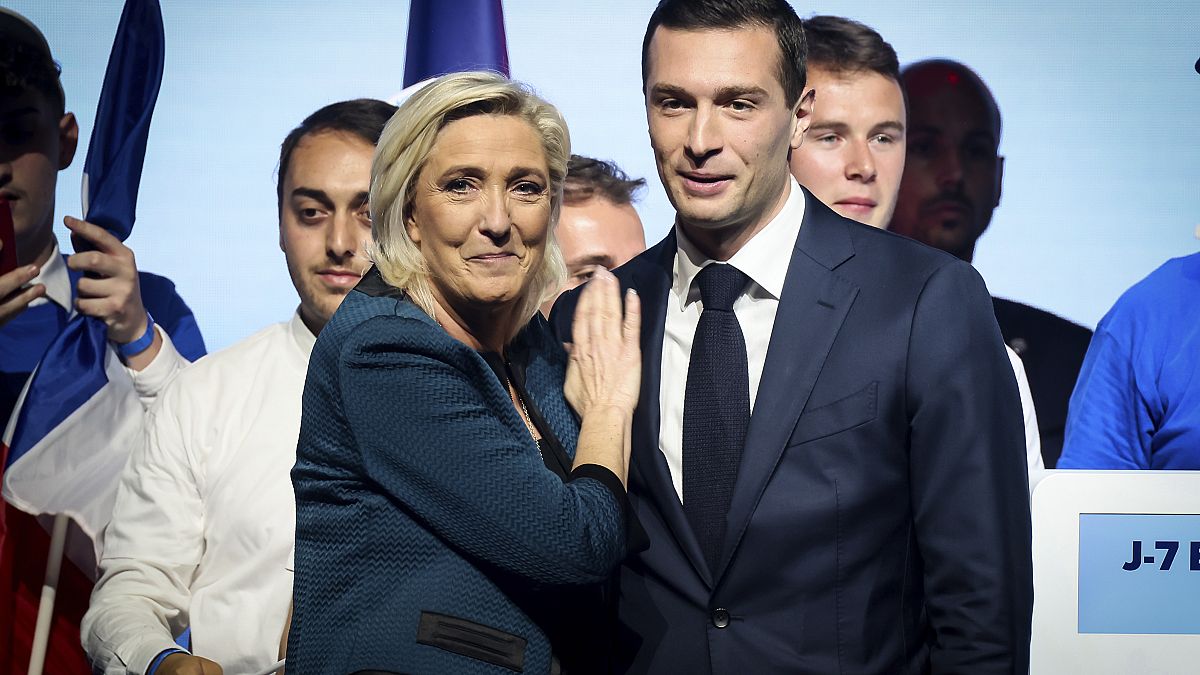World
Far-right leads in latest poll ahead of France’s legislative elections

At least 289 seats are needed for a parliamentary majority, and National Rally is predicted to get between 260 and 295 seats.
The latest poll suggests that the far right has around 36 percent of the vote as France prepares for the parliamentary elections, the first round of which is on Sunday.
The second round will be held on the following Sunday, 7 July.
If National Rally wins, France will have the first far-right government since it was occupied by the Nazis in the Second World War.
However, President Emmanuel Macron says he won’t step down before his term ends in 2027.
An Ifop Fiducial poll suggests that the National Rally will get about 36%, the Popular Front coalition of centrists, leftists and Greens about 28%, and President Macron’s centre-right party about 20%.
The winning number of seats is 289 out of the 577 seats that make up the parliament.
National Rally are expected to get somewhere between 260 and 295 seats.
The far right’s growing popularity appears to stem from people’s feelings of insecurity, and because France’s politics are now deeply polarised it will be hard for a coalition to form in parliament if no party wins outright.
National Rally’s 28-year-old Jordan Bardella delivered a simple message for voters in a recent TV debate. “Our compatriots have the feeling that the state no longer enforces its laws, that the state is weak with the strong and strong with the weak,” he said.
Turnout is expected to be higher this time around as voters know this could be a historic election. Many are determined to get the far right into power, with others desperate to keep them out.
Possible cohabitation?
President Macron will most likely be forced into appointing a prime minister from a rival party as his party shows no signs of being victorious. And if National Rally does win, that means Bardella will most likely be France’s next prime minister.
When the president and the prime minister are from different parties, France’s government is described as being in “cohabitation”.
The last cohabitation was under conservative President Jacques Chirac with Socialist Prime Minister Lionel Jospin from 1997 to 2002.
The prime minister is accountable to the parliament, leads the government and introduces bills.
“In case of cohabitation, policies implemented are essentially those of the prime minister,” political historian Jean Garrigues said.
The president is weakened at home during a cohabitation, but still holds some powers over foreign policy, European affairs and defence because he is in charge of negotiating and ratifying international treaties. The president is commander-in-chief of the country’s armed forces, and is the one holding the nuclear codes.
“It’s possible for the president to prevent or temporarily suspend the implementation of a certain number of the prime minister’s projects, since he has the power to sign or not sign the government’s ordinances or decrees,” Garrigues added.
“Yet the prime minister has the power to submit these ordinances and decrees to a vote of the National Assembly, thus overriding the president’s reluctance,” he said.
During previous cohabitations, defence and foreign policies were considered the informal “reserved field” of the president, who was usually able to find compromises with the prime minister to allow France to speak with one voice abroad.
Yet today, both the far right and the leftist coalition’s views in these areas differ radically from Macron’s approach and would likely be a subject of tension during a potential cohabitation.
Garrigues said that according to the Constitution, while “the president is the head of the military, it’s the prime minister who has the armed forces at his disposal.”
“In the diplomatic field also, the president’s perimeter is considerably restricted,” Garrigues said.







:max_bytes(150000):strip_icc()/roundup-writereditor-loved-deals-tout-f5de51f85de145b2b1eb99cdb7b6cb84.jpg)


